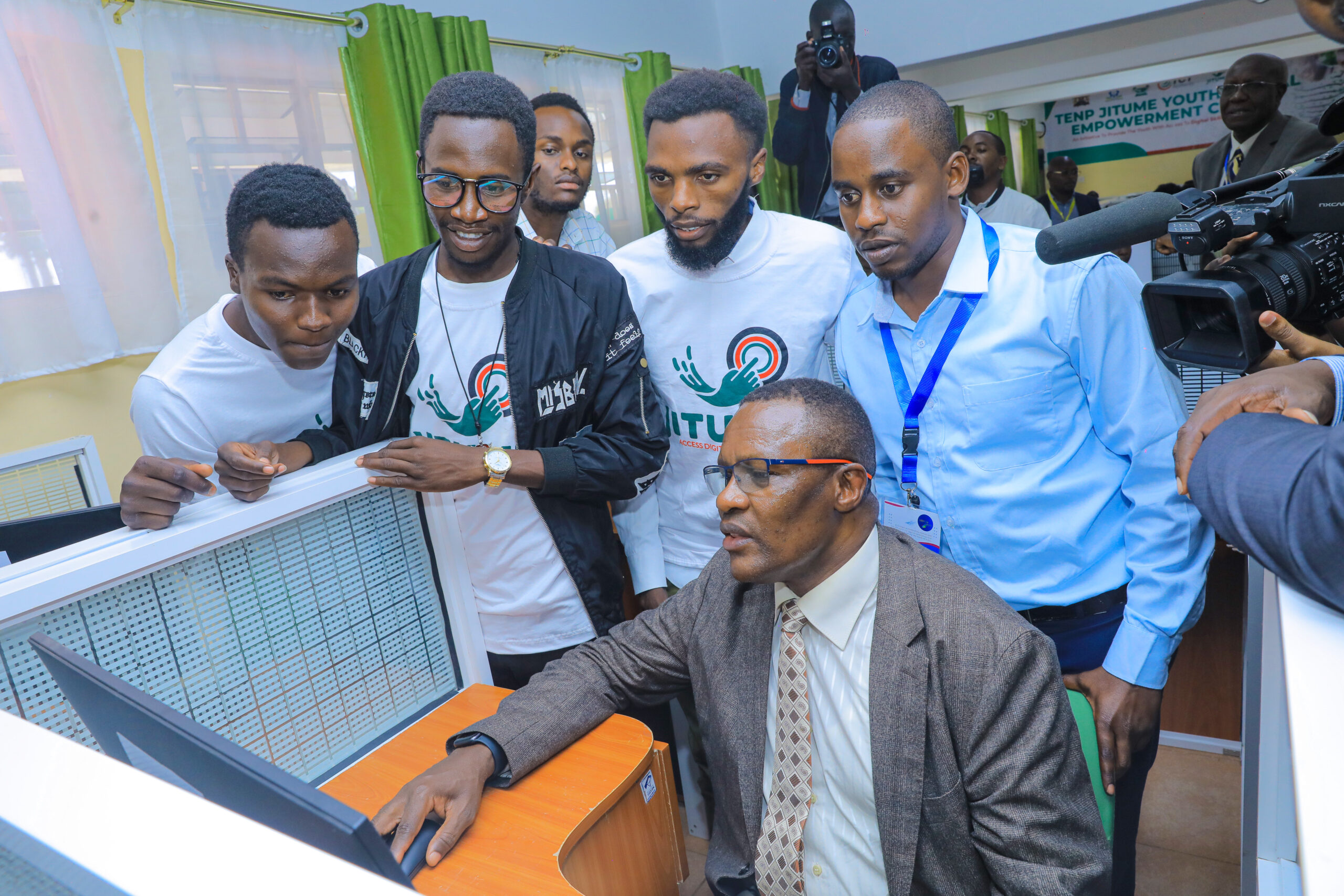
The Cabinet Secretary for Information, Communication and the Digital Economy in Kenya, Eliud Owalo has launched the first regional Jitume Laboratories in Uasin Gishu and Bungoma Counties. This follows the official launch of Jitume program by H.E President, William Ruto at Kabete National Polytechnic in December 2022.
Jitume is a Government initiative aimed at providing access to digital skills, e-services and online opportunities to the youth across the country. The program is being implemented by the Ministry of ICT and the Digital Economy, Ministry of Education, Ministry of Foreign and Diaspora Affairs and Ministry of Labour led by Konza Technopolis, ICT Authority and TVET Authority. Through the program, youth from all the 47 counties will undertake on the job training with pathways for digitally enabled jobs. Additionally, the students will benefit from various courses online and receive certification upon completion.
Speaking during the launch of the Eldoret National Polytechnic Jitume Centre, CS Owalo indicated that the government is glad to roll out the program in all the 47 counties and that in three to five years’ time, the program will benefit atleast one million youth across the country, a move that will reduce unemployment in the country.
The CS said: “The Kenya National Digital Master Plan (2022-2032) envisages upskilling of over one million youth who enter the job market annually with ICT skills. Training them on ICT and other vocational areas will support the rapid adoption of ICT in business. Each Jitume Center will have 100 Virtual Desktop Infrastructure (VDI) with broadband connectivity, reliable power, security and program coordinator provide by Konza Technopolis.”
In Bungoma County, the CS noted that 17 Jitume Labs have already been deployed at TVET institutions across the country to take advantage of their already existing governance system, ability to attract the critical numbers of youth, as well as the human resource.
“We expect them to be all fully-operational by the end of February 2023. Trainees at the Kabete National Polytechnic are already beneficiaries, with some realizing their initial earning from digital jobs. We are intensifying the Digital Talent Programme, whose key components are skill development, on the job coaching, mentorship, training, certification and ICT innovations,” said the CS.
In December 2022, President William Ruto conceived the Jitume programme with the aim of complementing and building on the successes made by the existing Digital Enablement Programmes such as Ajira Digital & the Kenya Youth Employment Programme.
On his part, Dr. Esther Mworia, the Principal Secretary, Technical Vocational Training Institutes (TVETs) under the Ministry of Education, rallied the youth to take advantage of the facilities and get the training. She committed support from the Ministry of Education.
KoTDA’s acting CEO John Paul Okwiri noted that the program is a key deliverable of the Knowledge economy focus which seeks to establish kenya as a Technology Talent Hub. Under this program, Konza Technopolis will deploy 25,000 virtual desktop infrastructure devices to establish Jitume centers in all the 47 counties. The first phase of the program seeks to deploy two centers in each of the 47 counties by June 2023.
Bungoma County Governor, Rt Hon. Ken Lusaka and Uasin Gishu County Governor Jonathan Bii Chelilim rallied the youth to take part in the programme and noted that they will support the project in their counties in a bid to support the digital economy.
Jitume Program, encourages the youth to take it upon themselves to access digital devices to enable them to learn and become certified on digital skills for the Fourth Industrial Revolution.
The Government of Kenya, through the Ministry of ICT has defined major flagship projects that are set to drive the digital sector forward. These projects include; training of citizens and improving the digital literacy of Kenyans, developing of 100,000 Kms of fiber optic infrastructure to learning institutions, government institutions, and health facilities, setting up of 25,000 hotspots to be deployed countrywide, setting up of 1,450 innovation hubs countrywide and, automation and digitization of all core government services in both national and county governments.